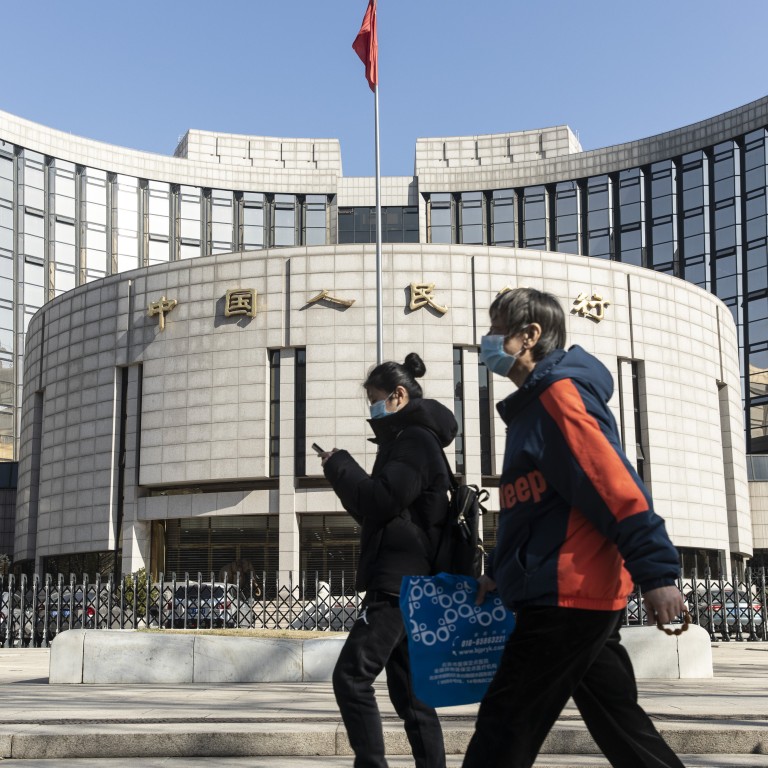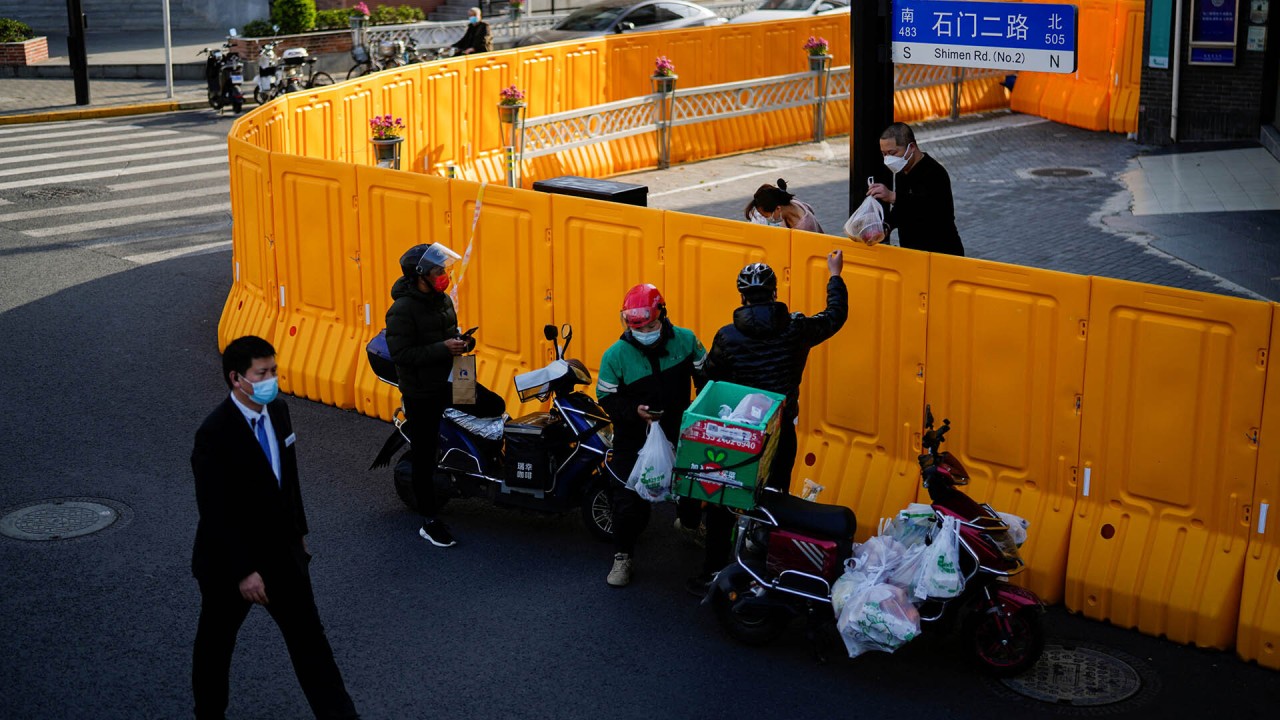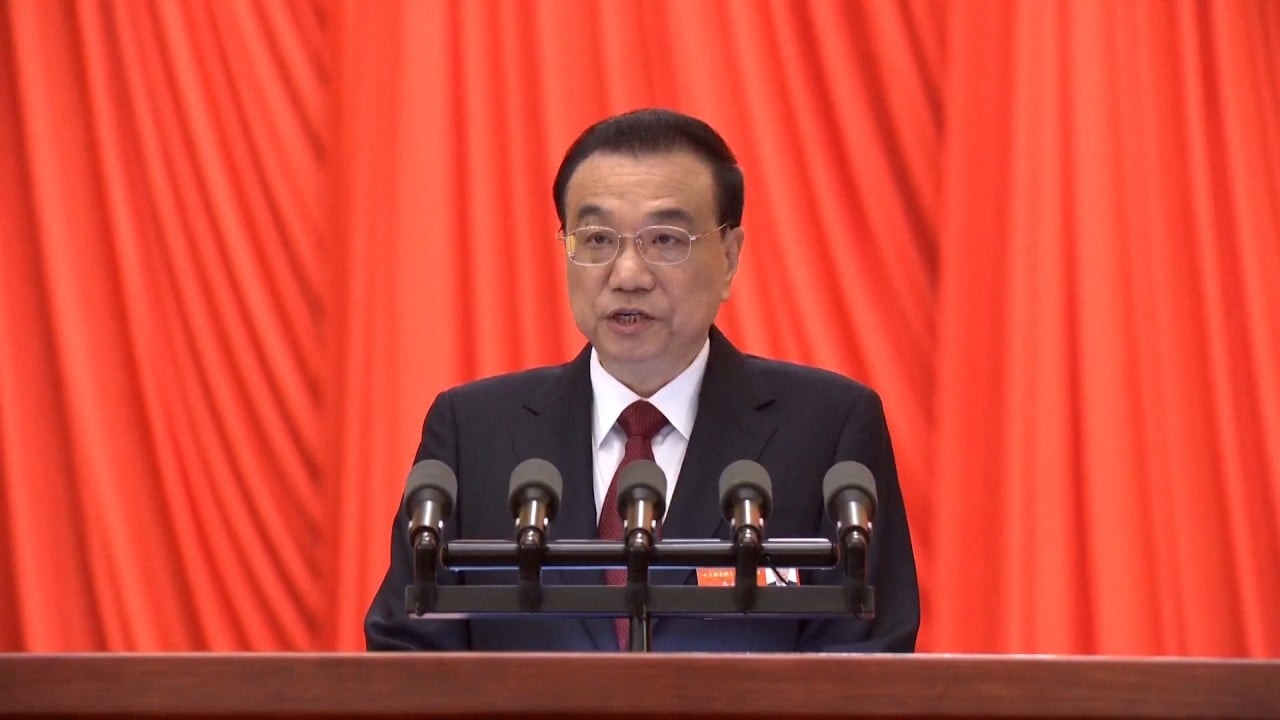
China’s draft financial stability law takes aim at ‘scattered’ rules governing systemic risks
- The People’s Bank of China (PBOC) says existing legal framework ‘lacks overall design and cross-industry and cross-departmental arrangement’
- New law will be ‘credit positive’ for Chinese financial institutions because it will provide a legal framework to reduce risks, Moody’s Investors Service says
China is edging closer to enacting a financial stability law that would fix the “scattered” set of rules currently used to handle financial risks.
The central bank said the existing legal framework “lacks overall design and cross-industry and cross-departmental arrangement”, while the relevant provisions are “scattered” and “too much about principles”. There were also clear holes in financial stability regulations.
A new financial stability and development committee under China’s State Council, led by Vice-Premier Liu He, would play a key role in overseeing the sector, but different ministries would also have responsibilities, the draft rules said.
China’s forex assets could ‘turn to zero’ if US imposes sanctions
Chen Long, co-founder and partner of Beijing-based research firm Plenum, said much of the draft law has already been put into practice.
“But there is the need to legalise it as law rather than a series of documents,” Chen said.
“There is a lot of emphasis on the financial stability and development committee as the manager, with the central bank leading the pack, with participation from the finance ministry and local governments.”
The fund would be financed by the country’s banks and financial infrastructure operators. The PBOC would provide liquidity support to the fund when needed, the draft law said.
Nicholas Zhu, vice-president and senior credit officer at Moody’s Investors Service, said that Beijing’s move to legislate for financial stability is credit positive for Chinese financial institutions because it will provide a legal framework to reduce systemic risks.
“The proposed financial stability security fund will be a new mechanism to mobilise public resources to deal with emerging risks that could threaten financial stability,” Zhu said.
“For commercial banks, the draft law, if enacted, will be an important milestone in progressing towards an operational resolution regime with a reasonably clear understanding of the impact of a bank failure and resolution process for depositors and other creditors.”
The draft law stresses local governments are responsible for managing debt risk, as well as holding shareholders of financial institutions accountable if they misuse customers’ funds.
It also includes provisions on cross-border cooperation “in accordance with the principles of reciprocity and mutual benefit” to deal with cross-border financial risks in a “timely and effective manner to prevent cross-border contagion of risks”.
China’s ‘corruption problem’ at local levels poses political, economic risks
China’s foreign exchange reserves fell by US$25.8 billion in March to US$3.19 trillion, the State Administration of Foreign Exchange said on Thursday.
The forex regulator attributed the drop to price changes in dollar-denominated assets and said China’s economic resilience will support overall stability of forex reserves, playing down market concerns of capital outflows and the yuan depreciation.
Amid a broader deterioration in US-China relations, tensions between securities regulators in the two countries have flared.
A law passed by the US Congress in May 2020 allows the Securities & Exchange Commission (SEC) to delist Chinese companies from US exchanges if American regulators are not allowed to review the audits of such companies for three consecutive years.
The China Securities Regulatory Commission said last month its chairman Yi Huiman and his counterpart, SEC chair Gary Gensler, have held three virtual meetings since last August to discuss a resolution for the legacy issues in coordinated audits of companies.
Chen said while resolution of the long-running auditing dispute is not impossible, it is difficult to know the possible outcome at this point.
The draft law also comes amid a high-profile anti-corruption campaign aimed at clamping down on high-risk financial institutions.



